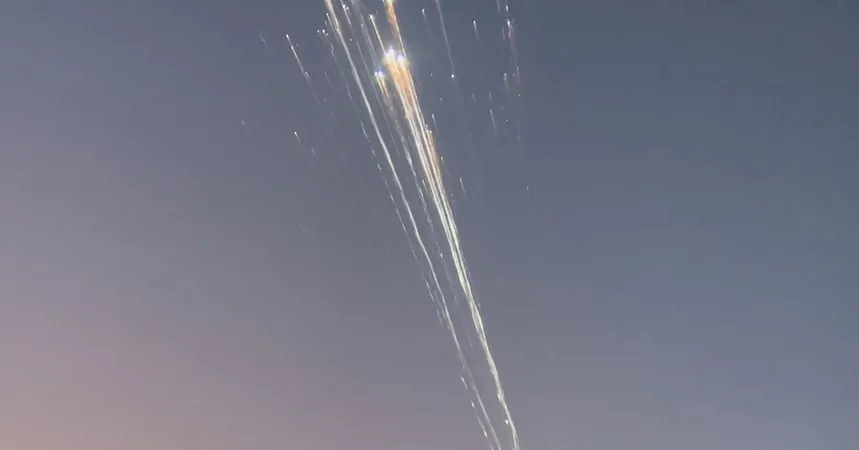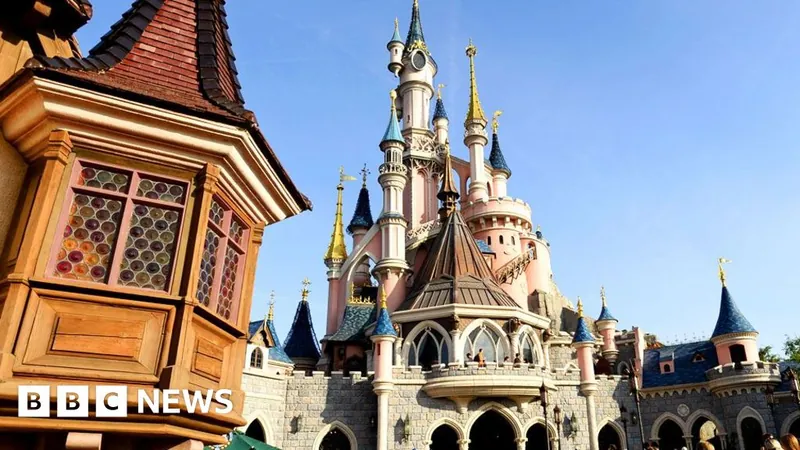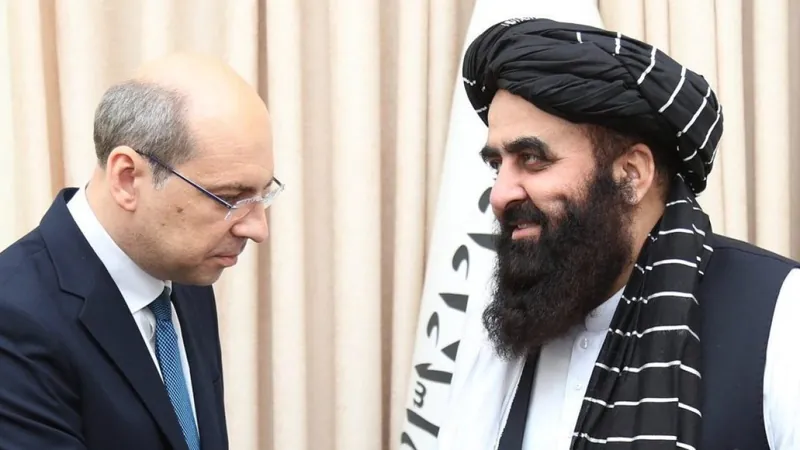
FAA Puts the Brakes on SpaceX's Starship Launches Following Dramatic Explosion!
2025-01-18
Author: Ting
Dramatic Turn of Events
In a stunning turn of events, the Federal Aviation Administration (FAA) has temporarily halted all launches of SpaceX’s Starship after a catastrophic explosion during a test flight sent debris plummeting towards the Caribbean. This alarming incident unfolded on Thursday evening as the gigantic rocket, touted as the most powerful ever built by Elon Musk’s company, met a fiery fate shortly after liftoff, creating a hazardous situation for aircraft in the area.
Urgent Air Traffic Warnings
Air traffic controllers in Puerto Rico issued urgent warnings as the Starship’s remnants rained down, prompting nearby flights to take evasive action. “Space vehicle mishap,” a controller reported over the radio, with reports indicating that spectators in Puerto Rico and passengers aboard nearby planes witnessed glowing pieces of the spacecraft streaking across the sky.
Details of the Explosion
The explosion occurred after the Starship’s second stage detached from its Super Heavy booster, ascending at speeds exceeding 13,000 mph at an altitude of approximately 90 miles. It is speculated that at the moment of the explosion, the spacecraft weighed over 100 tons—before potential loss of fuel. Investigators are now assessing the full extent of damage, with early indications pointing to a fire in the rear section of the vehicle.
Concerns About Safety and Regulation
The FAA's suspension of Starship launches raises critical concerns about the safety and regulation of the growing tide of commercial space flights. With the proliferation of companies like SpaceX, the frequency of launches has skyrocketed—145 launches from the U.S. in the previous year alone, compared to just 21 five years prior. Most of these were conducted by SpaceX’s Falcon 9, responsible for deploying thousands of satellites for globally accessible broadband internet and various military payloads.
Impact on Airline Industry
While the FAA has reassured the public that there were no reports of injuries related to the explosion, investigations regarding potential property damage in the Turks and Caicos Islands are underway. The incident has elicited worry within the airline industry, as carriers such as Qantas have experienced flight delays due to falling debris from SpaceX rockets, underscoring the growing tension between air traffic safety and the booming commercial space launch sector.
Elon Musk’s Influence
Adding to the mix, Elon Musk is preparing to step into a key advisory role in the Trump administration, potentially influencing federal space launch regulations. With his newfound authority, there remains speculation about how the administration might expedite the review processes for future launches, provoking concerns from regulatory bodies like the FAA about maintaining adequate safety standards amidst ambitious growth.
Ongoing Investigations and Future Launches
As SpaceX takes the lead in conducting a mishap investigation, it will be monitored closely by the FAA, who retains the ability to allow the company to resume launches prior to the investigation's completion—should they demonstrate that safety protocols are intact. However, experts warn that without stringent regulation, the dramatic escalation in launch frequencies may lead to further accidents, jeopardizing both airline operations and public safety.
Conclusion
In an industry navigating rapid advancements and increasing complexities, this incident serves as a stark reminder that as humanity pushes further into the final frontier, the consequences of missteps in airspace and space traffic management must be taken with utmost seriousness. As we look ahead, the balance between innovation and safety will be more crucial than ever.





 Brasil (PT)
Brasil (PT)
 Canada (EN)
Canada (EN)
 Chile (ES)
Chile (ES)
 Česko (CS)
Česko (CS)
 대한민국 (KO)
대한민국 (KO)
 España (ES)
España (ES)
 France (FR)
France (FR)
 Hong Kong (EN)
Hong Kong (EN)
 Italia (IT)
Italia (IT)
 日本 (JA)
日本 (JA)
 Magyarország (HU)
Magyarország (HU)
 Norge (NO)
Norge (NO)
 Polska (PL)
Polska (PL)
 Schweiz (DE)
Schweiz (DE)
 Singapore (EN)
Singapore (EN)
 Sverige (SV)
Sverige (SV)
 Suomi (FI)
Suomi (FI)
 Türkiye (TR)
Türkiye (TR)
 الإمارات العربية المتحدة (AR)
الإمارات العربية المتحدة (AR)